Jemima Khan Goldsmith: My sons are Muslim, my brothers are tribally Jewish — I am caught between cultures
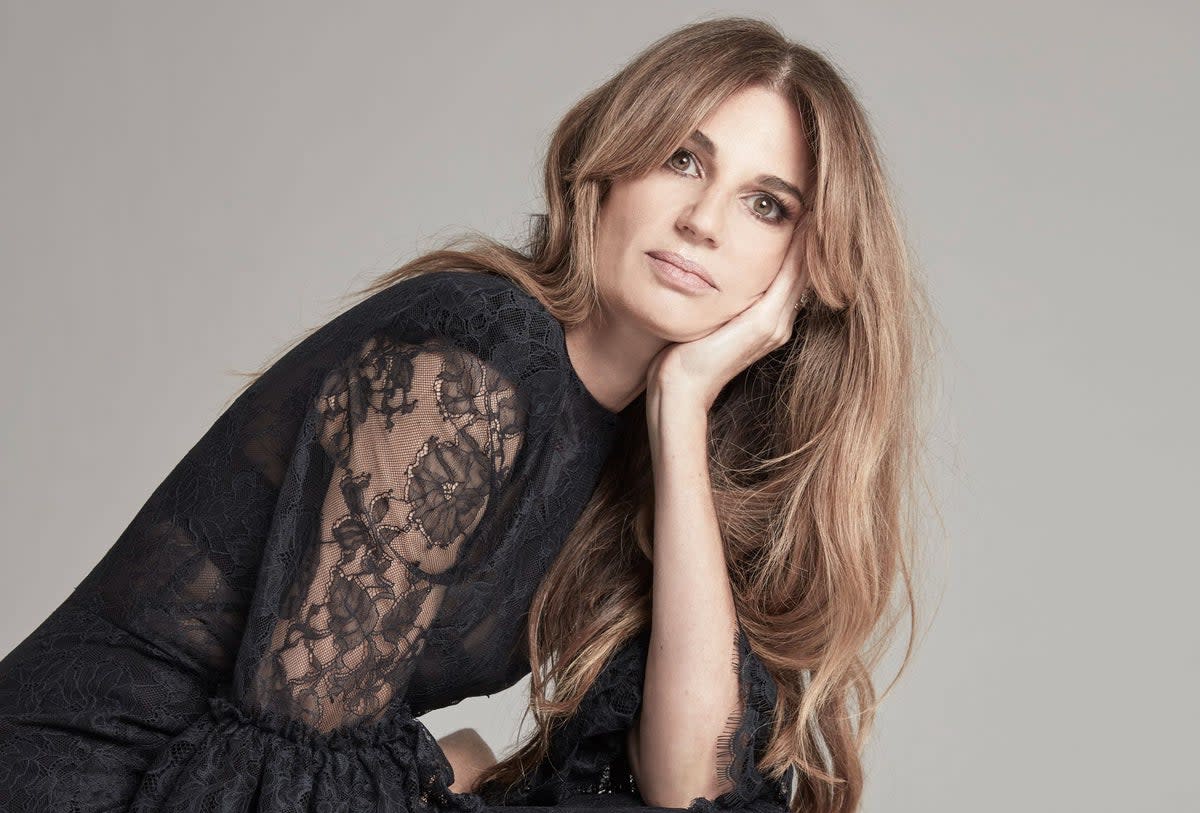
Jemima Khan Goldsmith is trying out a new name. Famous as both Jemima Khan and Jemima Goldsmith, she feels neither the Muslim nor the Jewish one fits her new hit podcast. “I’m so confused and schizophrenic about it, I’ve actually put both in the credits… it’s the first time I’ve ever done that,” she explains.
Her name is important, because the podcast is A Muslim & A Jew Go There, presented by her friends Baroness Warsi (who is Muslim) and David Baddiel (who is Jewish). Their tough weekly conversations about the issues of the day for their respective communities attempts thoughtful debate, rather than argument. Khan Goldsmith came up with the idea in the fallout of the Israel-Gaza war, and it’s already “taken over her life”. She does the planning, recording and editing — and when the show began in February, it went to the top end of the charts and has stayed there.
Until recently, she used Goldsmith (the name of her businessman father James, and brothers Zac, now Lord Goldsmith, and Ben) for her personal life, and Khan (her married name from her time with cricketer and beleaguered Pakistani politician Imran Khan) for work. “Both names really reflect my investment in this conversation, because there’s a Jewish name and a Muslim name” she says.
Often dismissed as a “socialite”, Khan Goldsmith, 50, has quietly become one of our most prolific TV and film producers. But after the shocking Hamas attack on October 7 and the brutal Israeli war on Gaza that followed, as well as arguments with her family over the subject, she set out to make her first podcast.
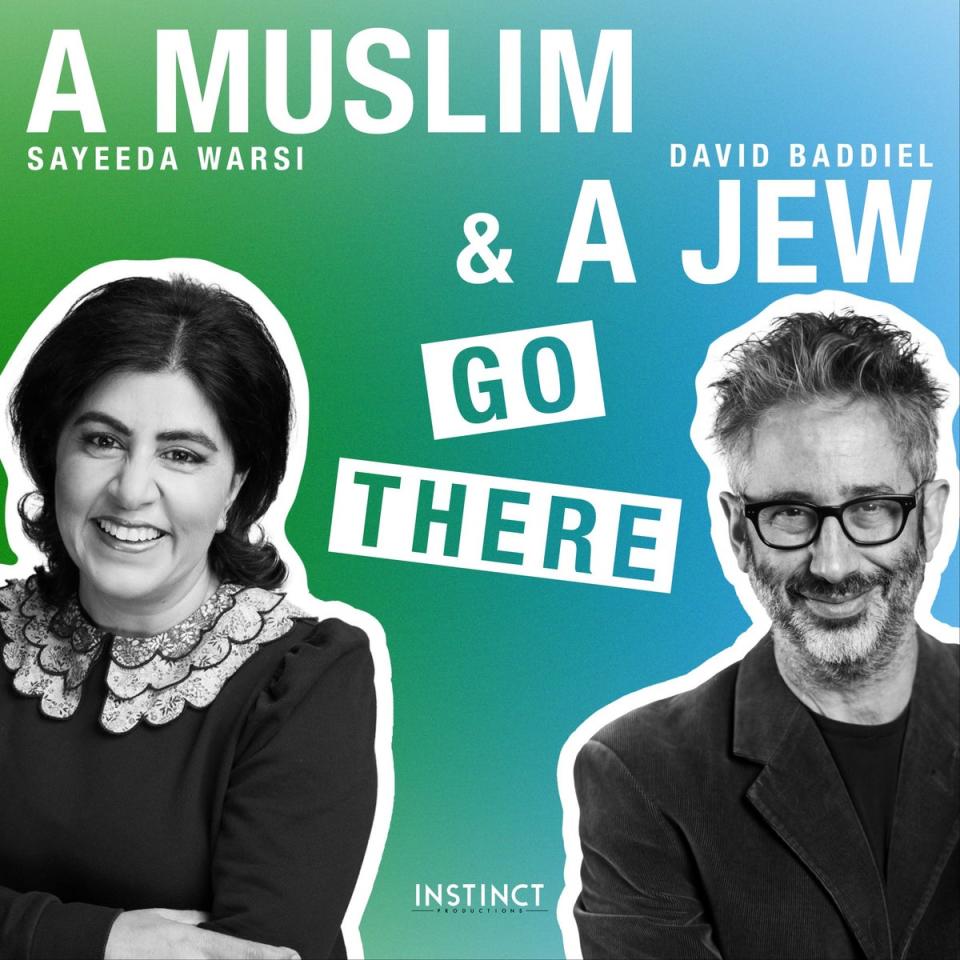
“There were two conversations going on that I was listening to, and they were not happening in the same room,” Khan Goldsmith says. “I was sort of slightly going from one to the other playing devil’s advocate. I have Muslim sons and I have brothers who consider themselves kind of tribally Jewish, and very aligned with Israel.” Early on in the war, Khan Goldsmith’s online arguments with her brothers about the war made the newspapers. When her environmentalist brother Ben posted his sympathy over Israel’s invasion, Khan Goldsmith responded: “What I know and you know, because you’re highly intelligent, is the solution is not this — targeting innocent Palestinian civilians’.
It was polite on the surface, but verging on bitter, and not very productive. A podcast was somewhere a conversation could be had in more depth. “This felt like my answer to it,” Khan Goldsmith explains. “For me, I felt that it was a way that my brother might engage with the arguments from another point of view, because he respects David Baddiel. He knows that David will make it okay for him to listen to another point of view, and the same goes for Muslim friends on the other side”. Has Ben listened to the show? “He tweeted about it, so he must have listened,” she laughs.
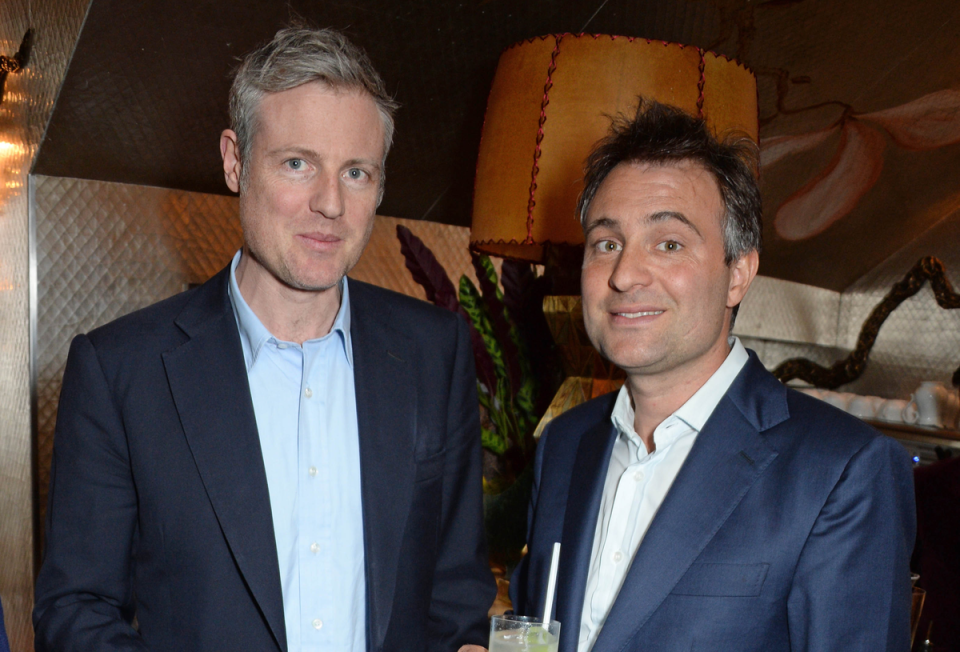
Khan Goldsmith admits the podcast can be “really challenging, and really uncomfortable”. Unlike many competitors, where the hosts chuckle along in harmony, it gets heated. “So many people have said that it’s been an uncomfortable listen, but a really important one,” she says. Khan Goldsmith says her favourite review is that the show is “civilised and civilising”.
The hosts are brave. Baddiel owns up to his own past mistakes, such as wearing blackface on TV in the Nineties, while Tory peer Baroness Warsi talks about her shame over using homophobic language. Baroness Warsi especially is not afraid of confrontation. She asks Baddiel what the British Jewish community feel when they look at the destruction in Gaza. In another episode, Baddiel asks her what she makes of the misogyny seen in extreme Islamic societies.
Khan Goldsmith’s motto is “both things can be true”, saying she almost wore a T-shirt with the saying on it for our chat today. And although it may be “pretentious” to say so, she says “my perspective is quite liminal”. “I feel as though I am sometimes caught between two cultures and points of view and worlds... I definitely, definitely don’t feel that I have a tribe. I don’t even have a political party”.
Khan Goldsmith grew up being seen as Jewish. Even though her successful businessman father James was atheist and had a Catholic mother, his name (changed by his own father from Goldschmidt, the banking dynasty) meant he “faced antisemitism from the British establishment” throughout his life.
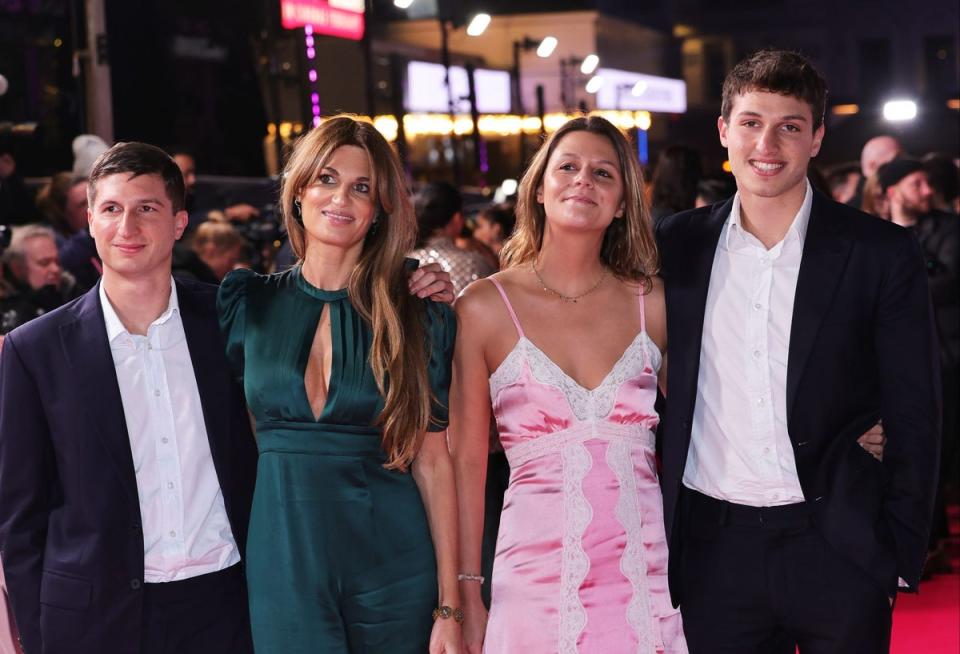
The young Jemima then converted to Islam when she married Khan. An It couple — she just 21, and he 42 — met at a Knightsbridge restaurant in the Nineties. She went to live in Pakistan and learned Urdu, living in a house with several of his family, and becoming familiar with the Koran and Islamic traditions. They split up a few years later after having two sons, Sulaiman, 27, and Kasim, 25 (the latter runs a marketing company here in London).
Khan Goldsmith faced antisemitism during her marriage, as conspiracy theories linked her husband’s political ambitions to the Goldsmiths’ supposed Jewish money. “I was the Achilles heel because of my ethnicity,” she says today. In 1996, the Lahore cancer hospital where Khan had his office was blown up in a suicide bombing, killing six people.
Khan eventually became prime minister of Pakistan in 2018, but was brought down by a no-confidence motion in 2022. While trying to win back power later that year, he survived being shot in an assassination attempt. This January, he was sentenced to 14 years in jail for corruption, alongside his third wife Bushra Bibi — one of several cases against him that he claims are politically motivated. If Khan Goldsmith talks about her ex-husband’s politics, there is a reaction. In 2022, hundreds of people protested outside her mother Lady Annabel’s home in Surrey.
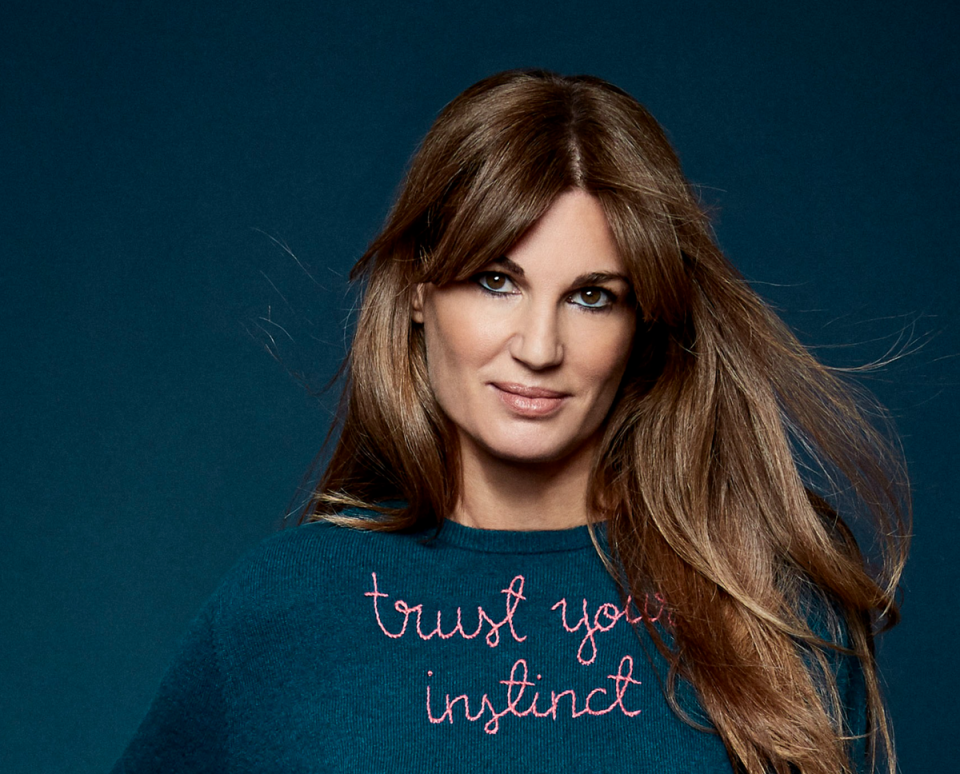
Now she’s back in England, Khan Goldsmith feels part of neither group. “If you ask Jews here, they would probably see me as Muslim, or they definitely wouldn’t see me as Jewish” she says. Khan Goldsmith won’t be drawn on her own views on Israel and Gaza, although she reminds me she has a masters degree from SOAS, with a thesis on modern trends in Islam, and has been to Gaza and the West Bank. She supports a ceasefire, but feels going into more detail isn’t “the point of the podcast”, which is about the British experience. “It’s about two demonised groups dealing with discrimination and bigotry who have turned on each other… the common enemy is racists and bigots,” she says.
Her company Instinct, formed in 2015, makes a variety of dramas and documentaries. “One thread that runs through all of them is taking something that people think they know about, and trying to examine it from a different point of view” she says. Her show The Clinton Affair explored Bill Clinton’s relationship with Monica Lewinsky from the women’s point of view. The Case Against Adnan Syed, about a wrongful murder conviction in the US, focuses on Islamophobia.
Most personal was the romcom film What’s Love Got To Do With It?, which Khan Goldsmith wrote. Starring Lily James, it explored arranged marriages here and in Pakistan, which she compared with her own love match. On the publicity tour last year, Khan Goldsmith said having an arranged marriage “could have saved me a lot of heartache and headaches”. Having had success with A Muslim & A Jew Go There, Instinct is now planning a podcast empire, with a slate of “two or three” ideas on other difficult subjects.
Sexism has been a big part of her life over the years. She says being called a socialite “does annoy me... because I work really hard”. “I’m not sure if I was a man, if the same thing would happen”. She’s often been written about as an addendum to the men in her life. After Khan, she dated Hugh Grant and then Russell Brand, and was more recently linked with The Crown writer Peter Morgan. (The attention means she is media savvy. She records our interview, which she says is to help me, but may also be for her peace of mind).
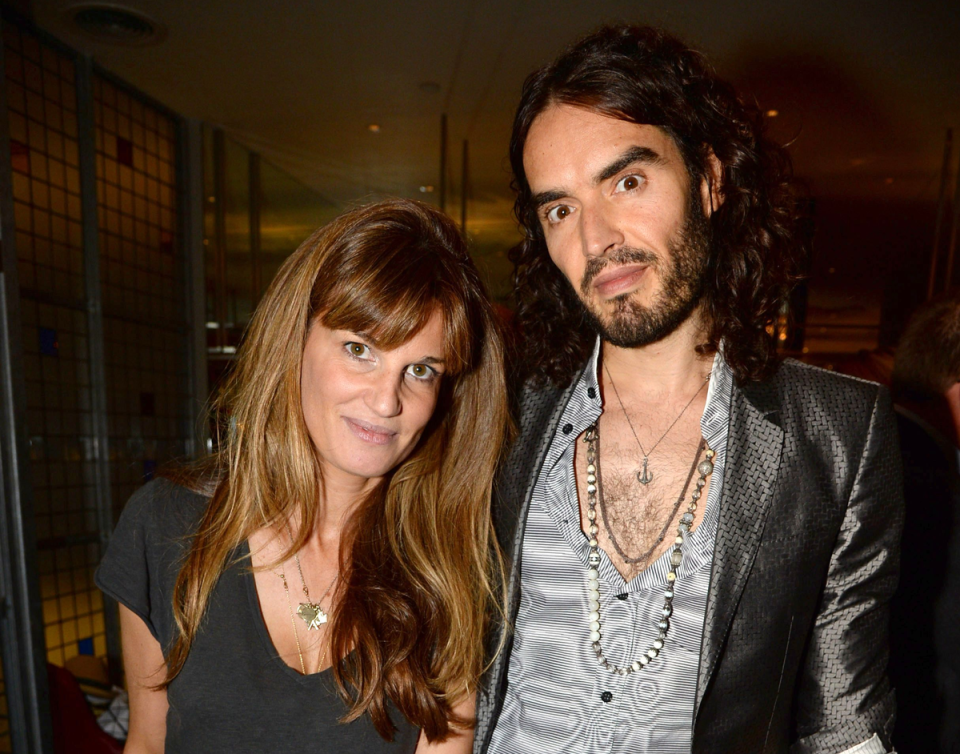
The fact she’s often been written about in relation to men makes it awkward I feel I have to ask her about Brand. Last year, he was accused of rape, sexual assaults and emotional abuse during a seven-year period up to 2013 — just before they got together, and which he denies. When I ask if she has anything to say about the allegations, she draws a zip across her mouth. But she will talk about the differences in their work.
Brand’s online videos are sensationalist, with titles like “Vaccine Passports: THIS Is Where It Leads” and “The Queen’s Funeral — The HIDDEN Truth”, while her work builds bridges. “I’m not looking for clickbait, not that I’m saying that’s [what he does]... I don’t know, I haven’t ever listened to it,” she says of Brand’s videos on Rumble. He moved to the platform after one of his posts was censored by YouTube, which alleged it featured Covid disinformation. She says her own work aims to be less antagonistic. “We don’t want to create controversy. We want to create conciliation and understanding, without wanting to sound so po-faced and worthy it makes everybody sick.”
Most of all, listening to A Muslim & A Jew... feels like an antidote to the tribalism online, particularly on X, formerly Twitter. “Social media is generally a cesspit, isn’t it?” she says. “It’s clearly insane at the moment, and there are certain real incendiary topics that you sort of almost shouldn’t even go near.”
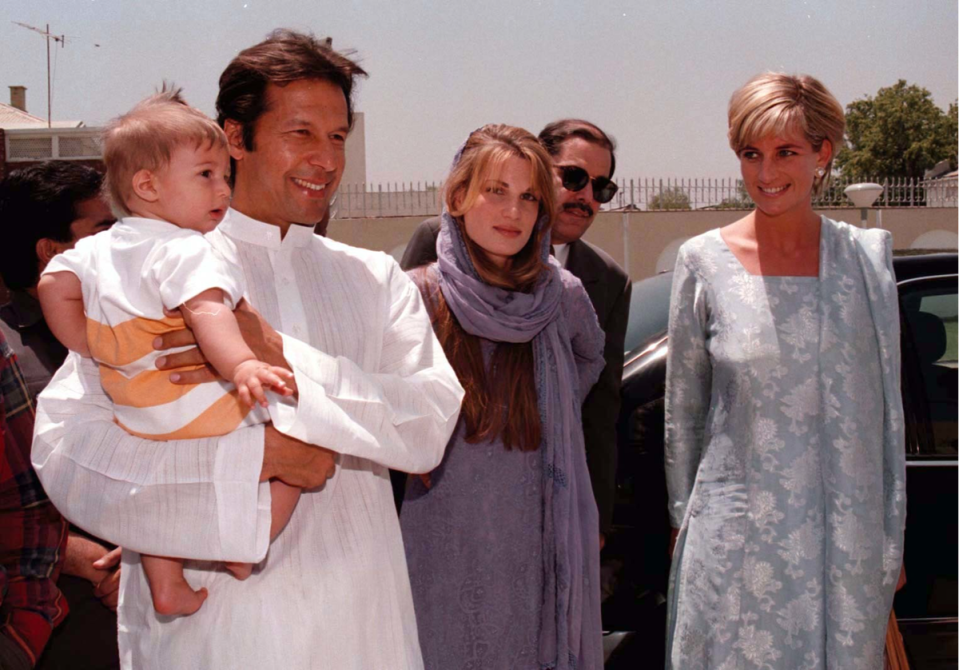
One of those is the royals. Khan Goldsmith called for restraint during the fevered online conspiracy theories about the Princess of Wales earlier this year and was proved right when Kate revealed a cancer diagnosis. “It seemed to me to be really misguided, and actually callous,” she says of the gossip. “I think that [people were] just forgetting that… no matter how out of reach those people seem, the likelihood is they probably do read some of that stuff.” Khan Goldsmith knows the royals better than most. She was friends with Princess Diana, and asked for her name to be taken off the credits for Morgan’s final series of The Crown when the script was more salacious than she liked.
A Muslim & A Jew Go There offers an alternative. “The podcast is almost a reaction to that, because you can’t really have a rational debate [online]” she says. “I think reasonable conversation and... being open to another perspective, and to being wrong, or only being half right, is the answer,” she says thoughtfully, seeming pretty certain. But as someone prone to self-reflection, you get the sense she might have something more to add soon.

 Yahoo News
Yahoo News 
